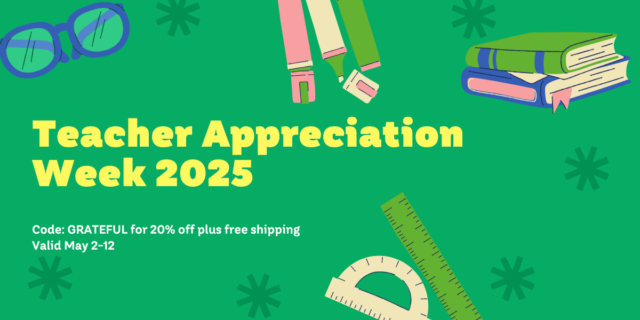
Welcome to the Heinemann Professional Development Professional Learning Community (PLC) series. Each month, we'll share a post designed to provoke thinking and discussion through a simple framework, incorporating mini-collections of linked content.
Use these as learning modules during your professional development time, whether in a team, a PLC, or on your own!
This month we take a close look at learning how to care for ourselves and others to sustain our work as educators.
by Jaclyn Karabinas
♦♦♦♦
![]()
Connect
If you have traveled on an airplane, you might be familiar with this safety message: Put on your own oxygen mask first before assisting others.
This makes it sound so simple, but our varied life experiences shed some truths. When things aren't as imminently dire or obvious as a crashing plane, it can be hard to recognize when or if we need the proverbial mask. Sometimes the steadfast dedication to our students impedes our ability to even see ourselves clearly. Care looks different from person to person—educators need each other so we can be supported to care for ourselves, and others, including our students.
Consider
Keep this guiding question in mind as you read each piece and move through your thinking from this post: How can we learn what support looks like for each other and our students, knowing that support will vary from person to person?
![]()
Educate
Read this piece by Cohort 3 Heinemann Fellow Janelle Henderson Dear Janelle: A Letter To An Overwhelmed Teacher. She begins by describing her hardest year as an educator thus far, and uses writing to explore the ways that she can find strength and support for continuing on in the coming school year. Janelle names a number of focal points and observations that shine light on what support looks like for her.
![]()
Reflect
What helped Janelle find strength and remember the reasons for her choice to be a teacher? How are her elements of self-care similar or different to what you would seek?
![]()
Practice
Using Janelle’s piece as a mentor text, write yourself a letter about where you are as an educator at this moment. Explore why it looks the way it does and name challenges as well as successes. Allow yourself to use writing as a way to make your past, present, and future in this journey visible like Janelle did.
While sharing our writing can feel challenging, remember that we ask students to do this all the time—leaning into discomfort is where the learning happens! Find a few colleagues to do this along with you so you can share your letters and learn the ways in which support is needed, and yet may look different among you.
![]()
Extend
Educators choose this profession for a range of reasons; we learn how to help each other (and our students) by listening to each other’s stories. Extend your thinking by listening to the stories presented in these next two pieces.
I'm Coming Out (As A Queer Educator Who Will No Longer Do This Work Alone)
In this first piece, teacher and researcher shea martin writes, “We must no longer depend on the outness of LGBTQ+ educators to make our schools more inclusive for LGBTQ+ students.”
For shea, support looks like allyship. It looks like not being charged with the work of making learning spaces more inclusive for educators and students of LGBTQ+ community solely based on being out or identifying with the LGBTQ+ community. shea explains, “Not all of us can be out and not all of us are. Make your classrooms, curriculums, and professional development more inclusive of our identities anyway.” Follow the link here or above to read and reflect upon the full piece.
Alumni Mentorship Through Acts of Cariño and Orgullo
Cohort 3 Heinemann Fellow Irene Castillón, assistant principal and teacher in San Jose, CA, explores cariño and orgullo as critical for first generation Latinx college students. Her action research question guides her to closely study and interview her advisees (research subjects), shining light on what they need to sustain and succeed as college students. Through questions such as, “Is there anything else that you would like to share with me?”, Irene gathers insights on how to care for and support these students. Read about their stories here.
![]()
Refine
Revisit our guiding question: How can we learn what support looks like for each other and our students, knowing that support will vary from person to person?
What have you learned about what you and your colleagues might need? How can you keep this practice as a priority?
![]()
Act
By listening to stories and naming what we perceive as self-care, we can uncover ways to stay strong in this profession. Make a list for yourself. What do you need for self-care? Which of those can be accomplished on your own and on which ones will you need support from others? Make a note of anything you have learned about colleagues’ needs or questions you have about the needs of others so you can continue providing support to each other, presenting our best selves to students.
♦♦♦♦
Looking for more PD?
Online: We have a variety of On-Demand courses available to you for self-paced, online learning. These courses are designed to be taken on your own or alongside a group of colleagues in our brand new, intuitive learning platform.
Off-Site: There are still some spots left in a few of our workshops this season with authors such as Kristi Mraz, Sara Ahmed, and more! Check out the schedule and see who is coming your way!
On-Site: Heinemann’s Speakers & Consulting Authors are thought leaders in how to create successful classroom and school environments based on respect, collaboration, empathy, and positivity.



